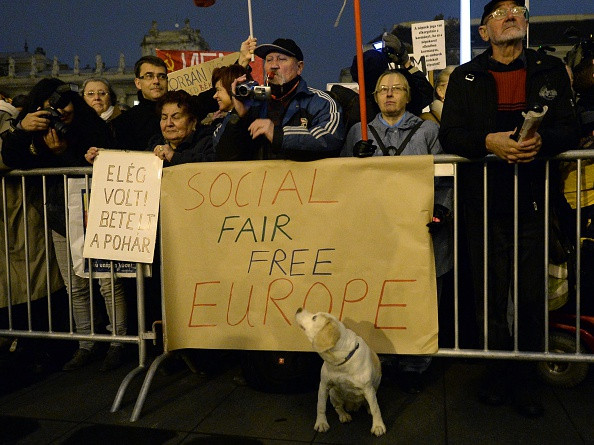Hungary Taxes Alcohol, Soaps, Shampoos, Supermarkets and Advertising

Lawmakers in Hungary approved a new set of unorthodox levies on Tuesday, including taxes on soap, alcohol, advertising and supermarkets.
The new set of taxes come after protesters slammed the controversial Internet tax, which was eventually shelved last month.
The new advertising tax is already being condemned by Germany's media giant RTL as discriminatory after it has hurt its parent company's profits.
Other new levies include "chips tax" on unhealthy food items, alcoholic beverages, and an environmental fee for shampoos, soaps and other products.
Launched in 2011, the "chips tax" was aimed at controlling obesity.
A "Tesco fee" nicknamed supervision fee, inspired by the British retail chain, will also be raised significantly for large, foreign firms.
In the works is also a new special tobacco tax that British American Tobacco has already condemned as "discriminatory".
Other past unorthodox taxes include a tax on text messaging and phone calls in 2012 and a financial transaction tax on withdrawing money and paying bills from ATMs in 2013.
The European Commission has warned controversial Prime Minister Viktor Orban that adding such special taxes can curb Hungary's growth and investment in taxed sectors.
Orban has imposed taxes on several sectors, including energy, banking, retail and telecom in a bid to reduce Hungary's deficit.
Critics say the taxes mostly benefit Orban's allies as their foreign rivals end up paying more in taxes.
© Copyright IBTimes 2025. All rights reserved.






















